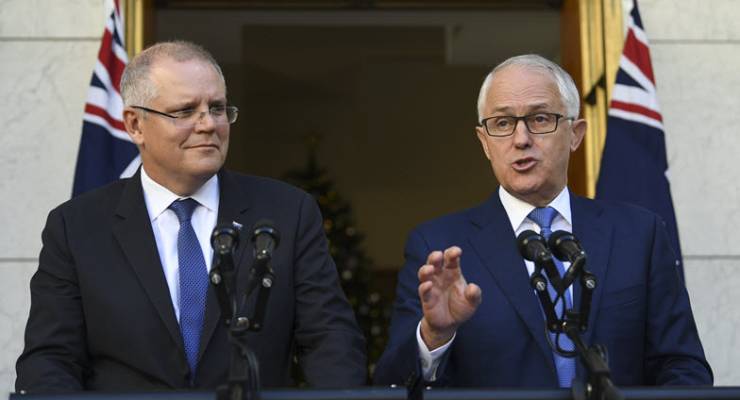
The Prime Minister having finally conceded the inevitable, 99% of the excitement about the banking royal commission is now over. Makes you wonder why he spent so much political capital on a cause that was not just a no-win for his government, but also easy in the end to stage-manage into disinterest.
The terms of reference for the commission have been carefully designed to maximise the unlikelihood of anything terribly interesting happening during or coming out of the process. They have been drawn extremely widely in terms of targets, encompassing not just the banks but the entire banking, superannuation and financial services sector including all insurance companies and Australian Financial Services Licence holders (of whom there are probably thousands).
At the same time, only a year has been allowed for the whole thing, forcing the commissioner or commissioners to make some very selective choices about how to spend the available time. To screw down the possibilities a little further, the terms explicitly exclude any exploration of “macro-economic policy, regulation or oversight”, meaning anything genuinely systemic.
That’s not to say that it will be a damp squib. Royal commissions have a historical habit of escaping their shackles and going entirely rogue. Once the government has appointed the commissioner and settled the terms of reference, it can’t interfere further without extreme political risk.
The commissioner has coercive powers, similar to a court. It can summon witnesses to appear and give evidence under oath. It can compulsorily require production of documents. Refusal or failure to comply is a serious criminal offence. There’s no privilege against self-incrimination as there is in a court hearing, except if you’re already facing criminal charges. However, evidence given to the royal commission can’t be used against the witness in subsequent criminal proceedings. That rule underlines the role of a commission as an inquisitorial fact-finding expedition, designed to get to the truth in a way that a court can’t.
What will this commission decide to do? I suspect that the commissioner will have regard to the reasons why the calls for a royal commission became so loud in the first place. Then he or she will structure a set of inquiries that might enable some conclusions as to why the banking industry, which the government describes in the terms of reference as “world’s best” in terms of prudential regulation and oversight, has fallen so far in public trust.
Logically, that would require an exploration of the most egregious examples of misconduct by the banks in recent years: the systemic failures of compliance and abject disregard for corporate morality and the legitimate expectations of their own customers. The money-laundering, interest rate-fixing and remuneration practices focused on revenue generation rather than appropriate advice, are all good candidates. Some of these are the subject of current legal proceedings. The commission isn’t precluded from still looking into them, but the commissioner is likely to leave anything already before the courts to that process and focus on issues that haven’t otherwise been legally addressed. If so, the bigger picture could be missed.
One thing I expect we’ll see is the CEOs of all four big banks facing some interrogation about the culture of their organisations. They’ll have been so carefully coached that there’s no real likelihood of any gotcha moments. Prepare for death by repetitive talking points about how seriously the banks take their social responsibilities.
Can the banks try to shut down any interesting content by claiming commercial confidentiality? Well, they can try. The commission has wide powers to protect trade secrets and commercial interests. Could get really interesting if it does decide to look into some of the ostensibly collusive practices of the banks, which will be hard to do without the disclosure of some of their deeper secrets.
If I were the banks, I’d be not losing sleep over all this. The worst that even a hyper-aggressive royal commissioner is going to uncover is that the Australian financial services industry is an amoral vacuum occupied by institutions whose sole pursuit is ever-growing piles of money. Which will hardly come as a surprise to anybody and will be comfortably ignored by the government.
In the end, nobody on either side of politics (the Greens and a couple of backbenchers apart) has a genuine interest in systemic change. Labor will try to cash in further on the banks’ unpopularity as the unsavoury stuff comes out during the commission’s hearings, while the government will hope that some of the taint gets spread to the industry super funds or, at least, widely enough that the resulting recommendations are too indistinct for it to have to invent a meaningful response.
Meanwhile, business will go on as usual. Then, after all the shouting dies down, business will still go on as usual.








It smacks of Howard’s corseted “republican referendum”? “Stitch it up to get the result you want”.
A Clayton’s Inquiry with the consolation (for the banks deigning) prize :- the key to the industry super hen house?
The Opposition should’ve ceased braying for a Royal Commission into banking & left it as a popular electioneering promise (which Turnbull/whoever would never have matched).
By pushing the matter we now have Turnbull & Co setting the terms of reference, the very situation which should’ve been avoided.
It is likely the RC will still be going when there is a Labor government. If so, all bets are off.
Agree that this will be a waste of time & money but, as Zut pointed out, also a massive political failure by gumBoil Shlernt – he could have been formulating an election winning strategy using the banks.
Many people would be dumb & deluded enough to believe that he would actually do something worthwhile, should he be able to maintain his body temperature and not fall out of his chair before the election delivers him with his Right faction baggage on the doorsteps of the Lodge.